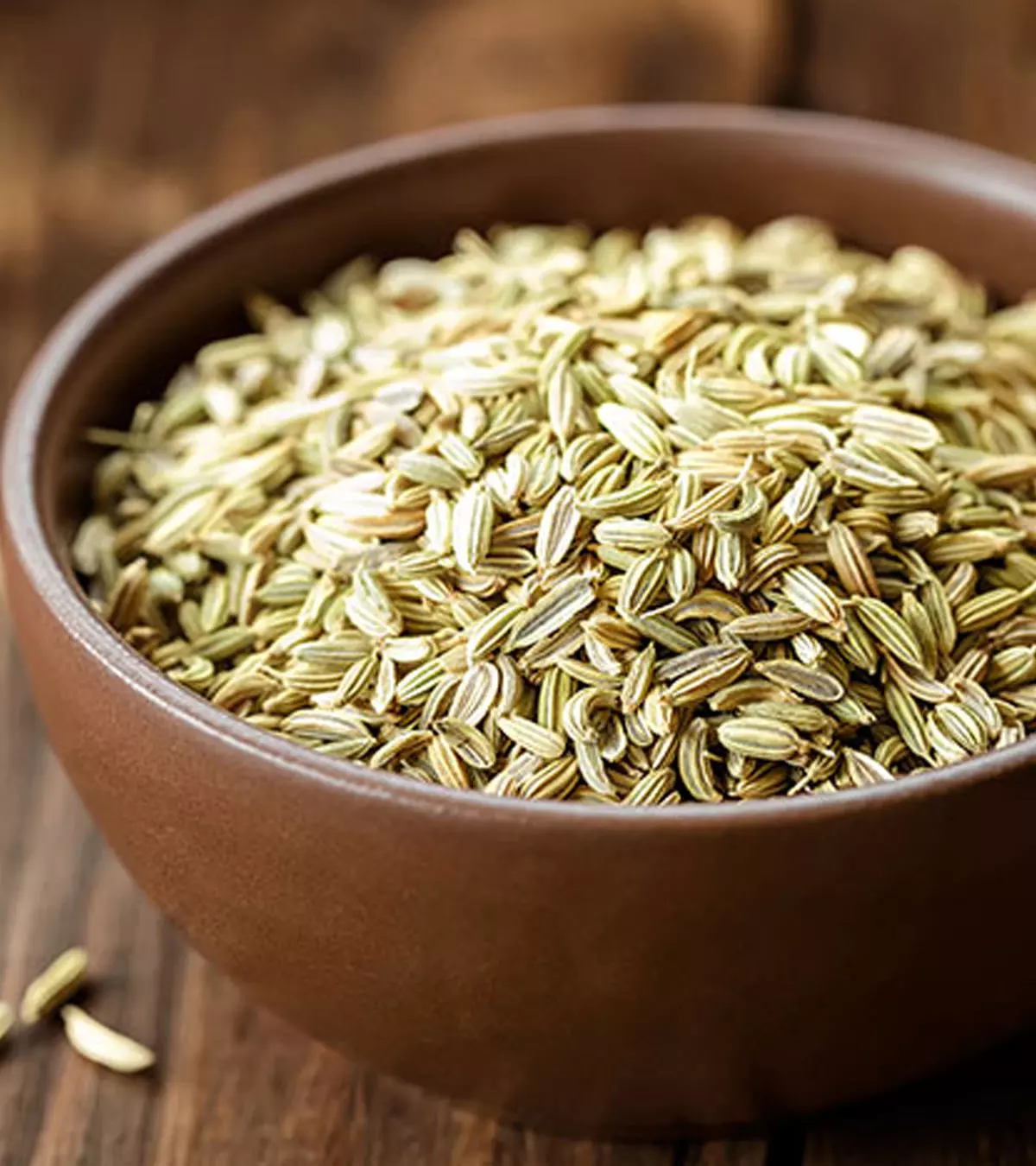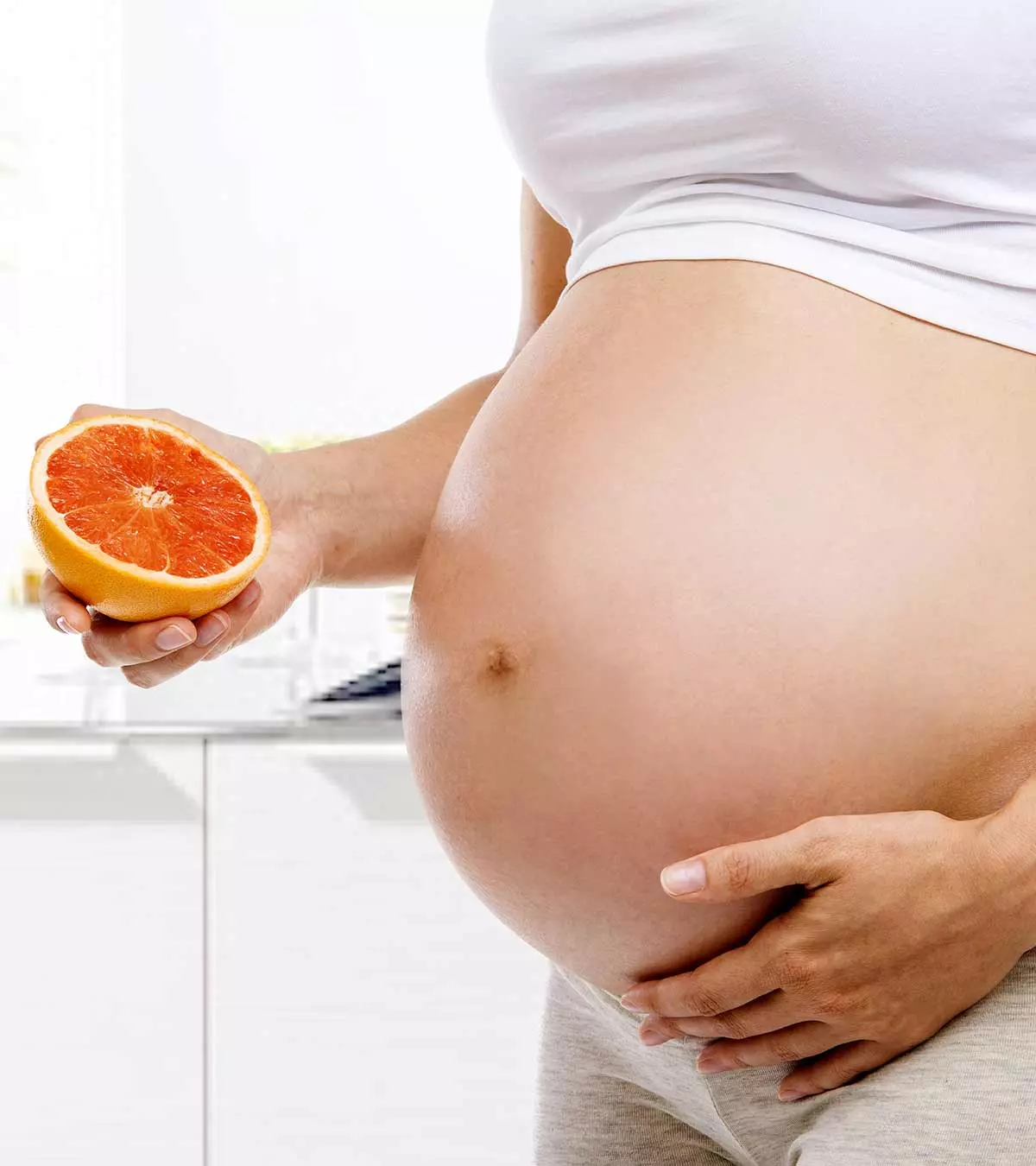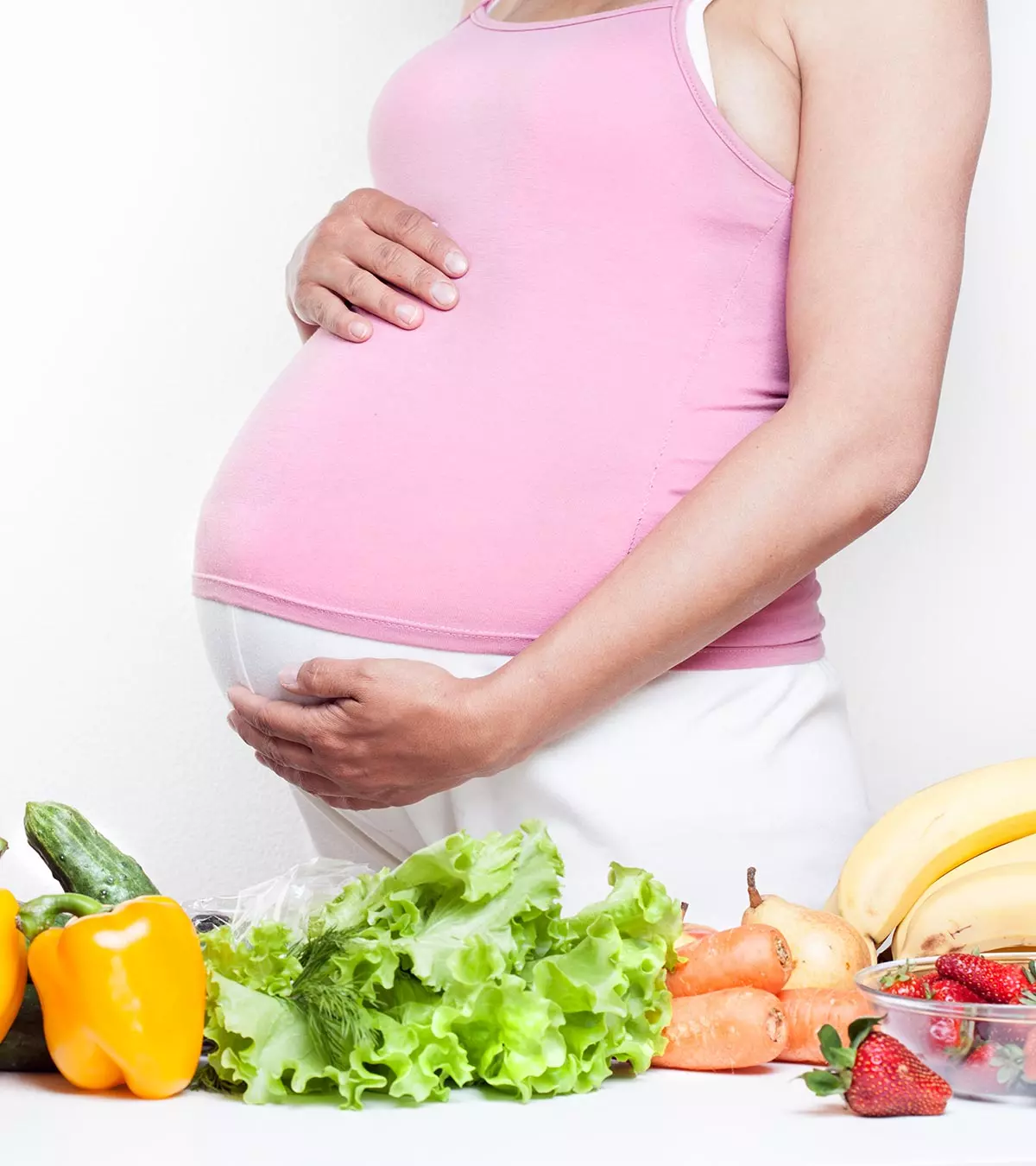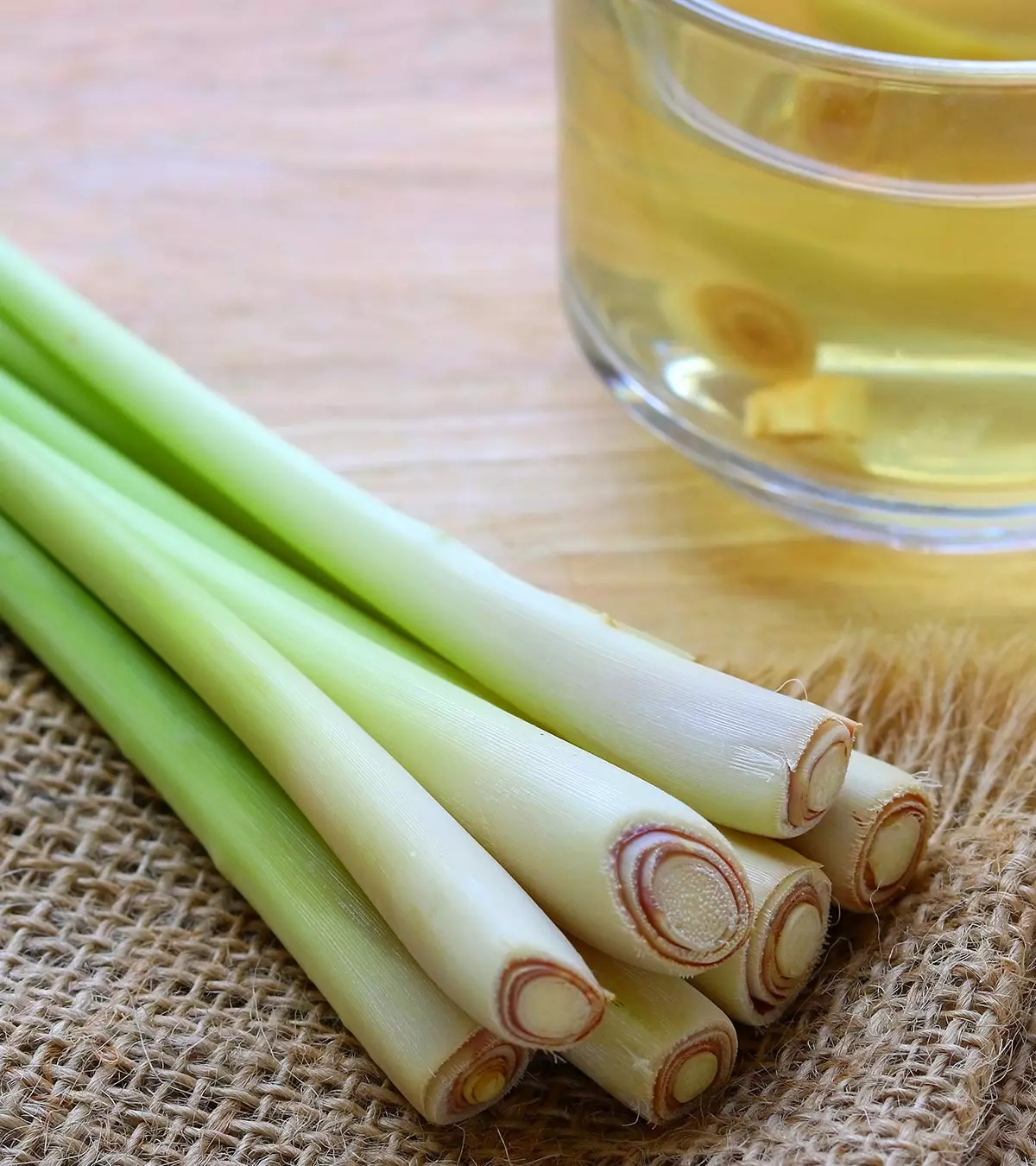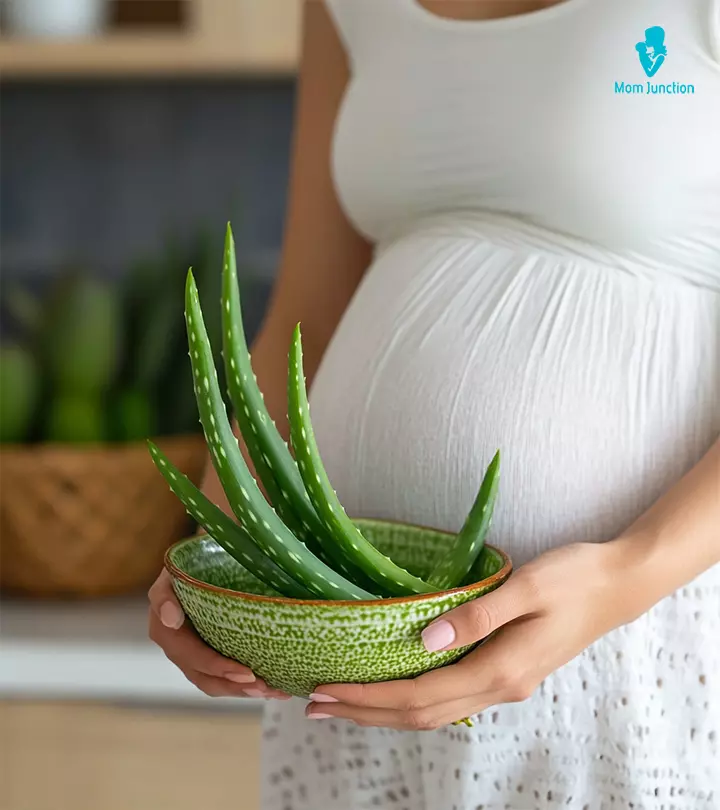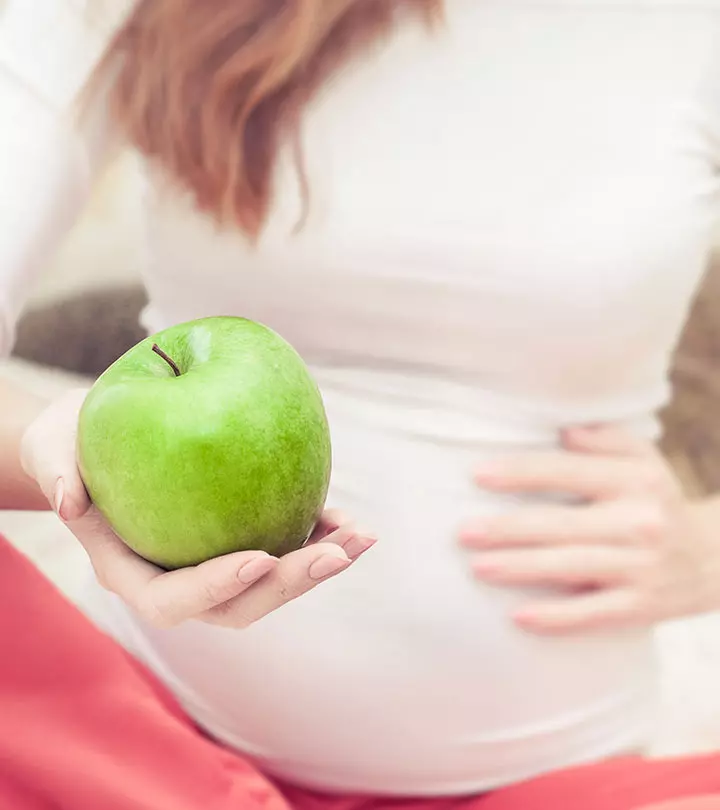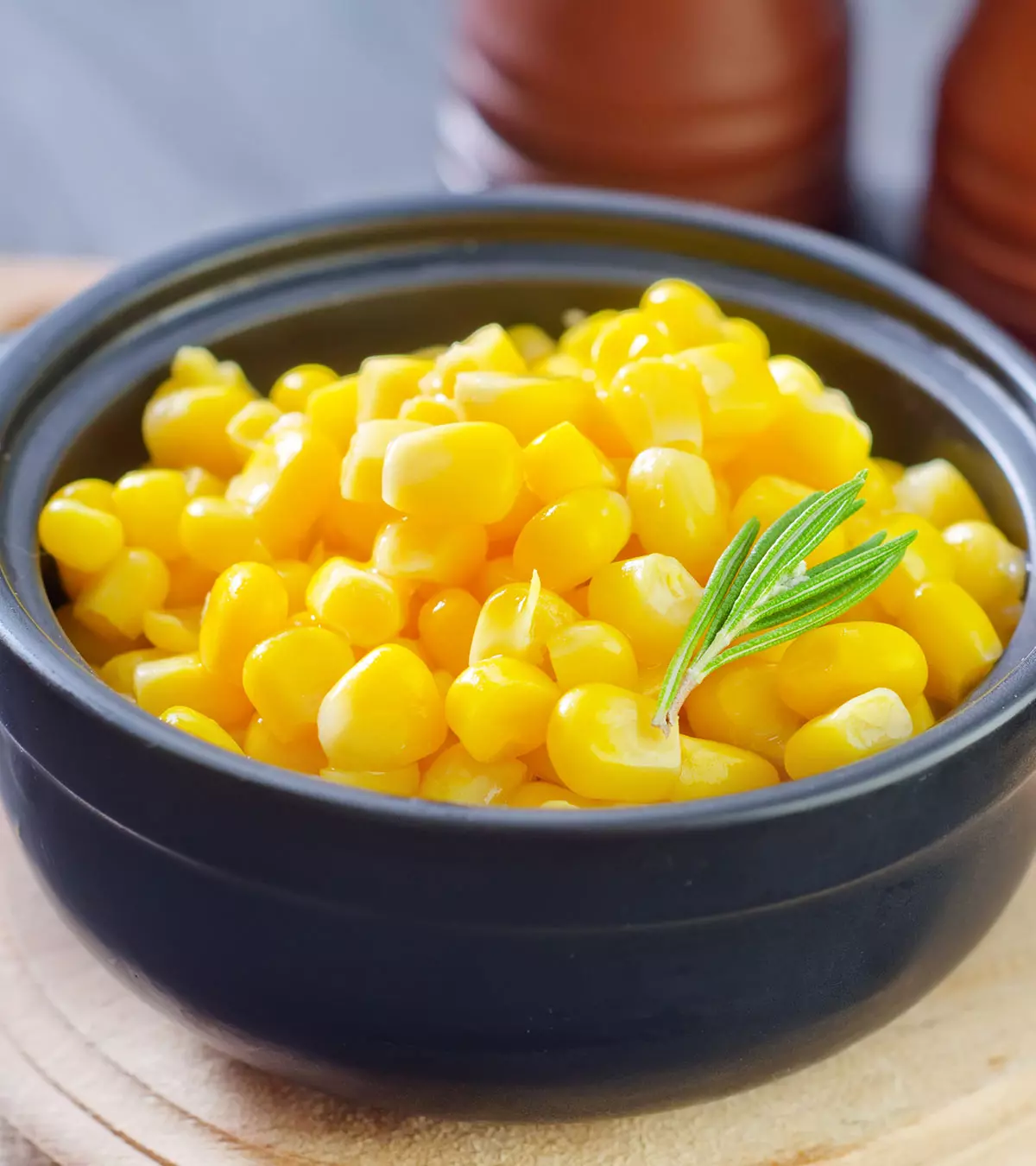
Image: Midjourney/ MomJunction Design Team
Cereals are an ideal and go-to breakfast for most people. However, to choose the best cereal for pregnancy, you need to be aware of its nutritional composition. Being the first meal of the day, if you want to have cereal for breakfast, it should provide you with energy to get you through the rest of the day. It should also be enriched with vitamins, minerals, fiber, carbohydrates, and other nutrients to cater to your nutritional needs during pregnancy. The right type can help you stay healthy and also benefit your baby.

Cereals are easy to prepare and the best accompaniment of milk. So in this post, we have listed out some of the best breakfast cereals for pregnant women, including their nutritional profiles.
Key Pointers
- It is important to eat a balanced diet that includes nutrient-rich foods during pregnancy.
- Cereal consumption is recommended for expectant mothers as it can provide essential nutrients and satisfy hunger.
- When choosing a cereal during pregnancy, it is crucial to assess its ingredients and nutritional content.
- An ideal cereal option for pregnant women should have high fiber, significant amounts of folic acid, an appropriate balance of carbohydrates, vitamins, and minerals, and minimal sugars.
What Should Your Cereal Have?
There is a very simple rule that governs the right diet for your pregnancy months
. Eat anything that helps your body attain all the vital nutrients and minerals that you specifically need during these nine months. Simple!
Trista Best, a registered dietitian, environmental health specialist, and adjunct nutrition professor, says, “During pregnancy, it is important to consume a balanced diet that includes a variety of nutrient-dense foods to support your and your baby’s health. When choosing a cereal, look for one high in nutrients and low in added sugars. Some options include oatmeal, whole grains, and cereals enriched with folic acid and iron.
“Also, vary your cereal choices and include a variety of other nutrient-dense foods in your diet, such as fruits, vegetables, lean proteins, and healthy fats. Speak with a healthcare professional before changing your diet during pregnancy.”
- Now, applying this to your breakfast cereal, you can very well figure out that you need a cereal that has the following basic properties:
- It should be high in fiber content. This is necessary as you need to increase your intake of fiber-rich foods during pregnancy. It helps prevent constipation, which is a common problem faced by pregnant women. So, look for whole-grain cereal or high-fiber cereal.
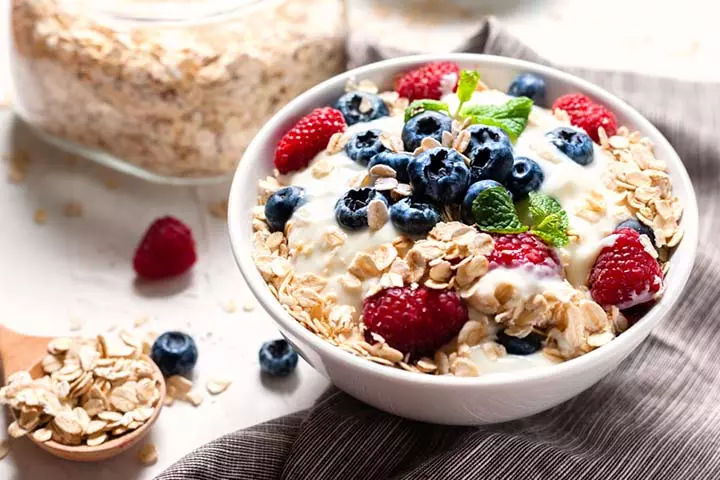
Image: Shutterstock
- Your folic acid intake needs to be high during your pregnancy. So look for a fortified cereal that has high folic acid content. Lack of folic acid can lead to the formation of birth defects. According to the Centers for Disease Control and Prevention, about 3% to 6% of babies are affected by these defects annually.
- Your cereal should have an ideal balance of carbohydrates that shall give your body the required fuel for energy.
- The cereal that you eat during your pregnancy should also be organic and fortified with vitamins and minerals that are necessary during pregnancy.
- You should also avoid cereals with harmful additives and preservatives—substances used to preserve the color and enhance the taste and shelf life.
 Quick fact
Quick factThe Benefits Of Cereal
It is a myth that pregnant women must eat cereal for breakfast without fail.
This makes no sense and it is not humanly possible for a person to eat cereals without a break every day!
The fact that cereals are recommended during pregnancy stems from the fact that it is a great way to give your body what it needs. There is no doubt that eating cereal for breakfast is quite filling. The benefits associated with eating cereals are:
- Cereals are a great way to include milk in your diet. There are a lot of women who do not usually drink milk. So, cereals are a great way out for these women to have milk on a regular basis.
- Whole grain cereals are rich in fiber and other minerals and vitamins. Hence, it is a good way to make sure that your body gets the stipulated amount of these every day.
- Cereals can be had in many different ways. You can have it plain with milk only. You can jazz it up by adding fruits, berries and nuts to increase the flavor. Doing this also helps ensure you get all the required pregnancy nutrition.
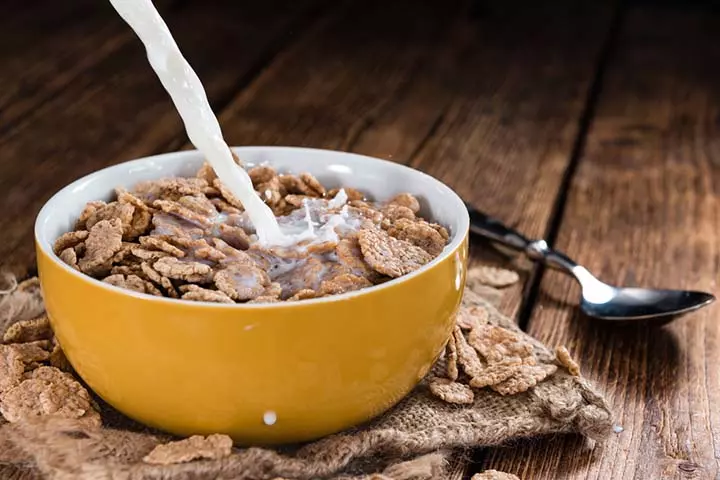
Image: Shutterstock
- Eating cereal is fuss-free. Since you will have mood swings because of switching hormone levels, you may get hunger pangs anytime during your pregnancy. Cereals are a great way to deal with those pangs. Pour out your favorite multigrain cereal, add your favorite toppings, and you are set to combat your hunger the healthy way.
YouTuber and mother of one, Devyn, documented her pregnancy journey and shared tips on healthy eating during her pregnancy. In one of her videos, she described her healthy breakfast routine. She says, “I start my day with something simple and quick, and this is cereal. The cereal that I’m eating is oats and almonds, so it’s not too high in sugar or anything. Then, I like to add in half of the banana (as I always like to get fruit when I can) and some calcium-fortified almond milk (i).”
 Point to consider
Point to considerBest Cereals For Pregnant Women
Choose the 10 best cereals during pregnancy from the table given below:
| Sl. No | Cereal | Serving Size | Nutrition profiling Index Score | Total Carbs (g) | Fat (g) | Protein (g) | Fiber (g) | Sugar (g) |
|---|---|---|---|---|---|---|---|---|
| 1 | Post Spoon Size Shredded Wheat | 1 Cup | 82 | 40g | 1g | 6g | 6g | 0g |
| 2 | Kashi 7 Whole Grain Puffs | 2 Cup | 82 | 30g | 1g | 4g | 2g | 0g |
| 3 | Kellogg’s Unfrosted Mini Wheat Bites | 1 Cup | 82 | 46g | 1g | 6g | 6g | 1g |
| 4 | Uncle Sam Flakes | ¾ Cup | 78 | 38g | 5g | 7g | 10g | 1g |
| 5 | Fiber One – Original | 1 Cup | 78 | 50g | 2g | 4g | 28g | 0g |
| 6 | Nature’s Path Synergy 8 Cereal | ¾ Cup | 78 | 24g | 1g | 3g | 5g | 4g |
| 7 | Weetabix | ½ Cup | 74 | 26g | 1g | 4g | 4g | 4g |
| 8 | Kellogg’s All-Bran Original | ½ Cup | 72 | 23g | 1g | 4g | 10g | 6g |
| 9 | Cascadian Farms Multigrain Squares | ¾ Cup | 70 | 25g | 0.5g | 3g | 2g | 4g |
| 10 | General Mills Cheerios | 1 Cup | 58 | 20g | 2g | 3g | 3g | 1g |
So, the next time that you are out in the supermarket, stock up on cereal of various types, such as folic acid fortified cereal, folate-rich cereals, iron-rich cereals, calcium-fortified cereals, and protein-rich cereals, while keeping in mind the pointers that we mentioned.
Check the sides of the box for the ingredients and the nutritional value of the cereal you choose and make a healthy choice for a happy pregnancy!
Frequently Asked Questions
1. Can a pregnant woman eat cornflakes?
Having carbohydrate- and mineral-rich cornflakes in pregnancy can be a healthy breakfast option when paired with low-fat milk. Moreover, opt for plain rather than flavored variety, as the former may have added sugar (3) (4).
2. Why do I crave cereal so much while pregnant?
Increased requirements of nutrients and energy during pregnancy can make you crave nutrient-rich foods, such as cereals (5) (6).
3. Do my cereal cravings determine my baby’s gender?
A small study showed that pregnant women craving and eating breakfast cereal gave birth to boys more than girls (7). However, large-scale research is needed to establish this finding.
4. Can I eat cereal every day during pregnancy?
Studies indicate that regularly consuming cereals during the periconceptional period—14 weeks before and 10 weeks after conception—can help reduce deficiencies in essential micronutrients, such as folate and iron (8). As cereals are rich in starch and excellent sources of folic acid, they can be one of the best foods to eat every day during pregnancy.
5. What are the best ways to enhance the nutritional value of cereal?
Adding fresh fruits, nuts, seeds, or yogurt can help increase the nutritional value of cereal. You could also substitute processed sugar with natural sweeteners like honey, jaggery, or maple syrup and sprinkle cinnamon, nutmeg, or cocoa powder for flavor.
Cereals are excellent sources of carbohydrates, fiber, vitamins, and minerals, making them the most-preferred breakfast meal during pregnancy. With various types of cereals available, it could be difficult for you to choose the best cereal for pregnancy. However, to help you out, we have listed 10 highly nutritious cereals along with their nutritional profile. Choose a cereal rich in nutrients and folic acid to meet your nutritional requirements during pregnancy. Also, consult with healthcare professionals about your dietary choices, and remember to check the ingredients and nutritional value of the cereal before purchasing.
Infographic: What Should Your Cereal Have?
Selecting the appropriate cereal can help regulate blood sugar and blood pressure and manage your weight while pregnant. Furthermore, it provides vital nutrients to you and your baby. Here is an infographic to guide you in choosing a safe and healthy cereal during pregnancy. Illustration: Momjunction Design Team
Reference : 1
Illustration: Best Breakfast Cereals For Pregnant Women
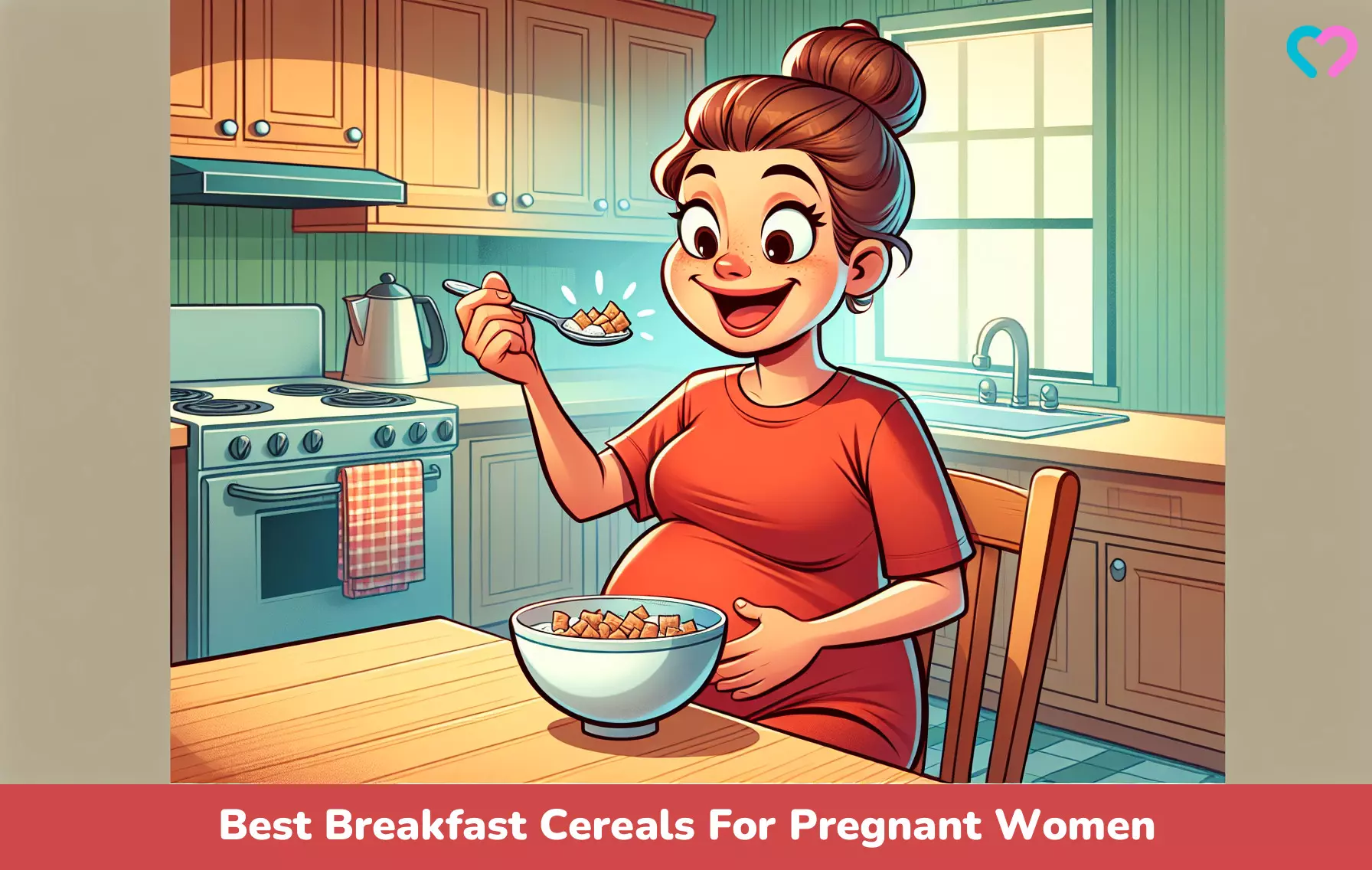
Image: Dall·E/MomJunction Design Team
Is it okay to eat Special K cereal during pregnancy? The following video explains to you the pros and cons of eating this cereal.
Personal Experience: Source
MomJunction articles include first-hand experiences to provide you with better insights through real-life narratives. Here are the sources of personal accounts referenced in this article.
i. What I Really Eat In A Day Pregnant (1st Trimester) | Healthy, Easy & Quick Meals For Pregnancy;
https://www.youtube.com/watch?si=eUTnbt_JceF4VRmD&v=3HDH7p_To9w&feature=youtu.be
References
- Peter G Williams; (2014); The benefits of breakfast cereal consumption: a systematic review of the evidence base.
https://pubmed.ncbi.nlm.nih.gov/25225349/ - 5 easy breakfast ideas in pregnancy.
https://www.tommys.org/pregnancy-information/im-pregnant/nutrition-in-pregnancy/5-easy-breakfast-ideas-pregnancy - Corn flakes; USDA
https://fdc.nal.usda.gov/fdc-app.html#/food-details/383344/nutrients - Breakfast cereals ranked best to worst; British Heart Foundation
https://www.bhf.org.uk/informationsupport/heart-matters-magazine/nutrition/breakfast-cereals-ranked-best-to-worst - A. J. Hill et al.; (2016); Nutritional and clinical associations of food cravings in pregnancy; Journal of human nutrition and dietetics; NCBI
https://www.ncbi.nlm.nih.gov/pmc/articles/PMC5054961/ - Cereals ready-to-eat, granola, homemade; USDA
https://fdc.nal.usda.gov/fdc-app.html#/food-details/171646/nutrients - Fiona Mathews et al.; (2008); You are what your mother eats: evidence for maternal preconception diet influencing foetal sex in humans; Proceedings. Biological sciences; NCBI
https://www.ncbi.nlm.nih.gov/pmc/articles/PMC2602810/ - Meredith Snook Parrott et al.; (2009) Maternal cereal consumption and adequacy of micronutrient intake in the periconceptional period; Public Health Nutrition; NCBI
https://www.ncbi.nlm.nih.gov/pmc/articles/PMC2705475/
Community Experiences
Join the conversation and become a part of our nurturing community! Share your stories, experiences, and insights to connect with fellow parents.
Read full bio of Dr. Irene (Eirini) Orfanoudaki
- Trista Best is a registered dietitian at Balance One Supplements, Environmental Health Specialist, and Adjunct Nutrition Professor. She completed her Masters of Public Health Nutrition from Liberty University and BS Dietetics from the University of Alabama before getting Dietitian Registration in 2018.
 Trista Best is a registered dietitian at Balance One Supplements, Environmental Health Specialist, and Adjunct Nutrition Professor. She completed her Masters of Public Health Nutrition from Liberty University and BS Dietetics from the University of Alabama before getting Dietitian Registration in 2018.
Trista Best is a registered dietitian at Balance One Supplements, Environmental Health Specialist, and Adjunct Nutrition Professor. She completed her Masters of Public Health Nutrition from Liberty University and BS Dietetics from the University of Alabama before getting Dietitian Registration in 2018.
Read full bio of Rebecca Malachi
Read full bio of Swati Patwal
Read full bio of Dr. Joyani Das





